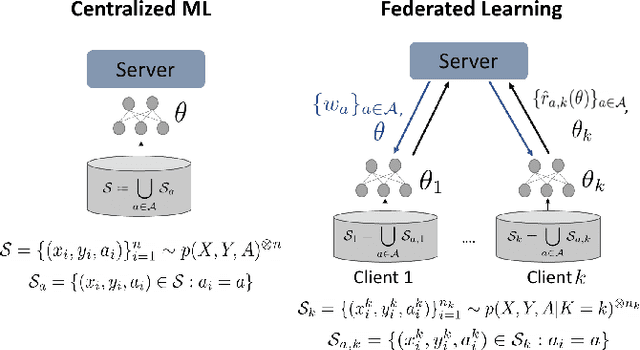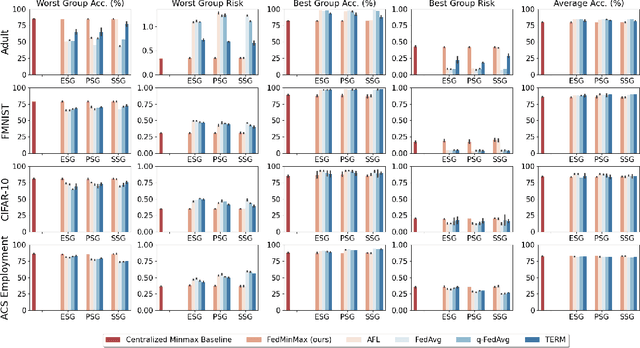Minimax Demographic Group Fairness in Federated Learning
Paper and Code
Jan 25, 2022



Federated learning is an increasingly popular paradigm that enables a large number of entities to collaboratively learn better models. In this work, we study minimax group fairness in federated learning scenarios where different participating entities may only have access to a subset of the population groups during the training phase. We formally analyze how our proposed group fairness objective differs from existing federated learning fairness criteria that impose similar performance across participants instead of demographic groups. We provide an optimization algorithm -- FedMinMax -- for solving the proposed problem that provably enjoys the performance guarantees of centralized learning algorithms. We experimentally compare the proposed approach against other state-of-the-art methods in terms of group fairness in various federated learning setups, showing that our approach exhibits competitive or superior performance.
 Add to Chrome
Add to Chrome Add to Firefox
Add to Firefox Add to Edge
Add to Edge